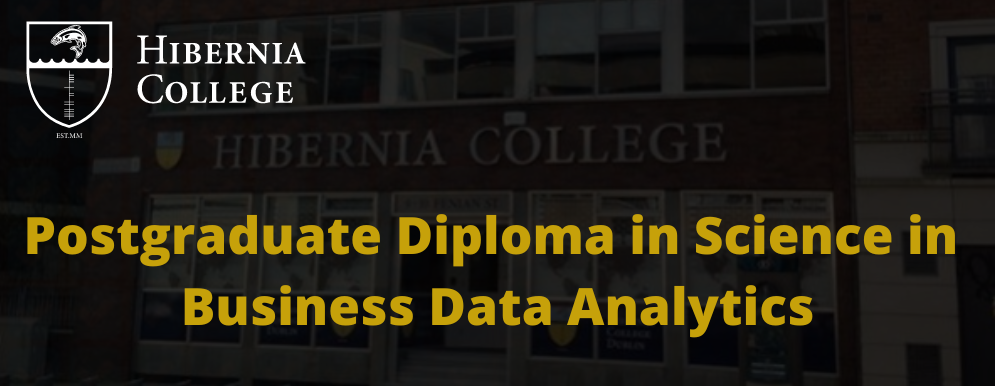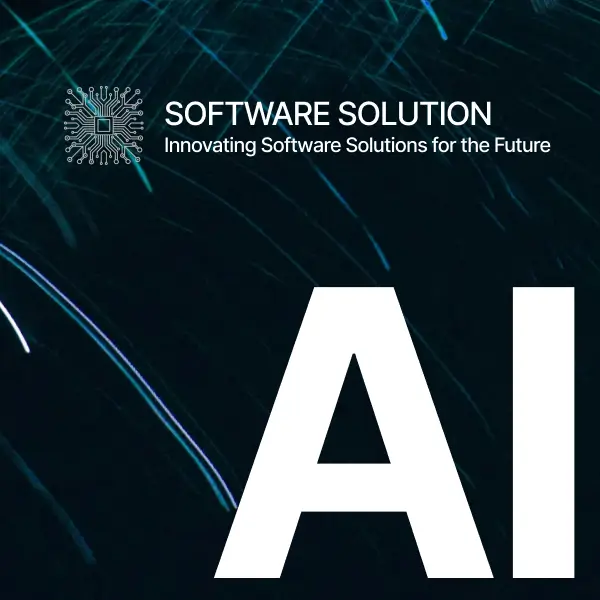General
Location
Hibernia College
All Locations
Dublin, Ireland
Duration
3 semesters
Earliest Start Date
19 Sep 2022
Application Deadline
Request Info
Languages
English
Study Type
Online & Campus Combined
Pace
Part-time
Tuition Fees
EUR 7,000
Introduction
The Postgraduate Diploma in Science in Business Data Analytics is a 60-credit award at NFQ Level 9 delivered over three 12-week semesters between September and June. This flexible blended learning program helps students to forge a career path in data analytics or business intelligence.
We have partnered with the Analytics Institute, Ireland’s professional membership organization for the data science and analytics industry, which will coordinate work placements and work-based projects for students with its 120+ member organizations. Our aim is to prepare a talented, highly-qualified cohort of work-ready graduates through the deployment of a carefully crafted range of targeted academic and industry-focused activities.
Business analytics, technology, and data science are the three pillars of knowledge underpinning the program. The field of data analytics intersects these knowledge domains, and the program design reflects this. The program design is informed by data and analytics thought leaders from higher education and industry and will cover areas such as data science, probability modeling, statistical data analysis, and essential industry skills such as applied business analytics and effecting successful projects.
This program is for those who wish to pursue a career in areas related to data analysis and business intelligence. It will support anyone seeking to either upskill or reskill with a view to forging a career path within the data analytics industry, which was established over 20 years ago and is now undergoing rapid growth with the advent of new technologies such as data mining and machine learning.
How Flexible is the Program?
The Postgraduate Diploma in Science in Business Data Analytics is a flexible program but requires a full-time commitment.
Average weekly class times total 10 hours. Live webinars, face-to-face tutorials, and laboratory tasks are scheduled in the evenings and on Saturdays. Students will meet each other and their lecturers/tutors face-to-face at a venue at least once during each module.
There will also be additional on-demand learning where students will be required to complete additional readings, practical work, and assignments. An estimate of the total weekly time requirement is 30 hours.
Students will also complete a 12-week placement or project. Those working in the industry will undertake a project. Placement is organized for those who need industry experience. The Analytics Institute will arrange placements for those who need them.
What is Blended Learning?
Blended learning is best understood as a ‘hybrid’ learning model consisting of online and traditional face-to-face tuition. Hibernia College programs integrate online collaboration tools, multimedia content, and digital communication technology with traditional face-to-face components, such as blended live webinars, face-to-face tutorials, laboratory tasks, and additional on-demand online learning.
Learning in this way with Hibernia College allows students the flexibility of completing a large part of the course from home.
The key to a successful blended program is the seamless integration of all course elements and the judicious use of appropriate technologies to make courses accessible, interactive, and engaging. With over 20 years of experience in the design and delivery of this model, Hibernia College offers effective learning programs that incorporate the best of both online and traditional teaching methods.
Read more on the institution website
Admissions
Entry Requirements
A minimum grade of Lower Second-Class Honours 2.2, or equivalent, in an honors bachelor’s degree at NFQ Level 8.
Students in this program will originate from directly cognate disciplines, including computer science, mathematics, statistics, engineering, and technology. Applicants from partially cognate disciplines such as finance, accounting, business, etc., may be accepted as determined by the Programme Director following evaluation against established criteria.
English Language Proficiency
An applicant whose first language/primary mode of expression is not English will be required to produce evidence of English competence. The required proficiency level is B2+ or higher in the Common European Framework of Reference for Languages (CEFR).
Mathematical Proficiency
The program requires students to have good numerical and statistical skills. As candidates can come from a diverse range of disciplines, essential foundational mathematics and statistics concepts will be introduced in the two-week orientation program. Online learning resources will also be provided to students in mathematics or programming should they require it after they complete the orientation program.
Curriculum
The program runs for three 12-week semesters between September and June. Live webinars, face-to-face tutorials, and laboratory tasks will be scheduled in the evenings and on Saturdays. Students will meet each other and their lecturers/tutors face-to-face at a venue at least once during each module. Average weekly class time totals 10 hours.
There will also be additional on-demand learning where students will be required to complete additional readings, practical work, and assignments. An estimate of the total weekly time requirement is 30 hours.
Course Content
Online asynchronous sessions can be studied in the student’s own time and include presentations, videos, tasks, and collaborative activities. Students will interact with their fellow students and lecturers/tutors in online discussion fora and also meet them in live online webinars and tutorials. During the program, they will create digital artifacts, code solutions to problems, create advanced data visualizations and produce technical reports.
An extensive online library will be available to support students in their studies.
Placement or Project
Students will also complete a 12-week placement or project. Those working in the industry will undertake a project. Placement is organized for those who need industry experience. The Analytics Institute will arrange placements for those who need them.
Program Structure
Semester 1
- BDA101 Software Development for Business Data Analytics: 5 Credits, 4 Weeks
- BDA102 Understanding Data: 10 Credits, 12 Weeks
- BDA103 Applied Probability Modelling: 10 Credits, 8 Weeks
Semester 2
- BDA104 Statistical Data Analysis & Inference: 5 Credits, 4 Weeks
- BDA105 Data Mining & Machine Learning: 10 Credits, 12 Weeks
- BDA106 Applied Business Analytics: 5 Credits, 8 Weeks
- BDA107 Affecting Successful Projects: 5 Credits, 12 Weeks
Semester 3
- BDA108A Placement: 10 Credits, 12 Weeks
-or-
- BDA108B Project: 10 Credits, 12 Weeks
About the School
Hibernia College
Hibernia College has a reputation for pioneering new teaching methodologies and embracing change in the ever-evolving world of education.





Leave a Reply
You must be logged in to post a comment.